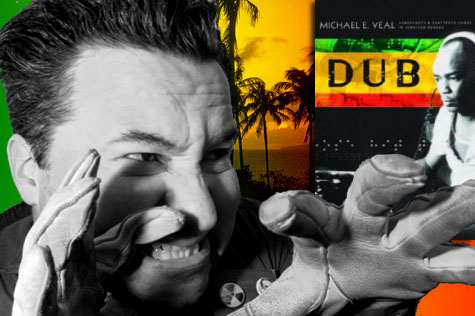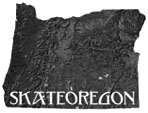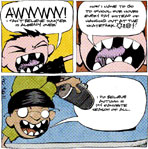
We have something a little different for you this week. Brad Krohn was kind enough to send us an excellent book review for the book Dub – Soundscapes and Shattered Songs in Jamaican Reggae, by Michael Veal, Wesleyan University Press, 2007. Check out all of Brad’s literary thoughts after the turn.
Jamaica is a like a tiny wire connecting the heavy cultural polarities of Africa and North America, and it glows red-hot. Dub by Michael Veal is more than a thorough history of the influential musical form, it is a fascinating primer on the origins and rapid evolution of the Jamaican recording industry. You’ve heard of American Hot Wax, but have you heard of Jamaican soft wax? This book will school your bald head on the definitive meanings of some common industry terms such as version, riddim, special, selector, and dub plate.
Ever wonder what The Clash were so excited about when they whaled out crazy shite like “Sledgehammer style!” and “Ray Symbolic!”? Well now is your day of reckoning. Via personally conducted interviews, exhaustive research, and solo pilgrimages to the island, the author vividly transports the reader deep into the Waterhouse ghetto-crucible of Jamdown town.
You are given entre to a gritty and soulful world marked by a revolving door of session musicians, exploited vocalists, mafia record “producers”, rival sound systems, DJ’s, skanking consumers, and gun-men. The stories in this book are too much. Like the time a local copper named Trinity with a cowboy hat and a Clint Eastwood fetish unloaded his revolver point-blank into the amps of King Tubby’s Home Town Hi-Fi to stop a dance. If that is heaven then take me now lord.
Besides providing detailed insights into the creative process surrounding the engineering of dub tracks, the book also explores the unique socio-economic milieu of post-colonial Jamaica that equally fueled the immergence of the music. Are the origins of dub the mere result of a third world economy’s industry-driven recycling of a limited resource by an oligarchy of fat cats? Could simple supply and demand lead to a Rocker’s Delight? You decide. What can’t be denied is the crucial impact of dub and Jamaican music on a world of artists, genres, and listeners.
Rating: A full bottle of Ting
Reviewer: Brad Krohn (a.k.a Dr. K.)













Red Stripe.
Carib.
Very well written review! I look forward to adding this book to my library!
i like the rating and the review. xo pinchy
Does the book cover just dub, or the broader range of Jamaican sounds that typically fall under the umbrella term of “reggae”, i.e. everything from early 60s ska through present?
I would like to know that too. Does it cover dance hall reggae, 60’s ska like derrick morgan,Skatalites,desmond dekker etc? Either way some of the best music on earth came from there looks like a good book.
Almost exclusively dub, but in explaining the origins of dub it discusses the other forms such as calypso, ska, rock-steady, roots, dancehall, steppers, lover’s rock-everything. The dub came from the b-side of roots/rockers reggae singles- it was a way just to fill the b-side without hiring someone to write/perform another tune. Hence the economic milieu actually drove the emmergence of the form- out of necessity. Fascinating. The book also reveals how dub really began “remix culture” and talks (briefly) about the 12″ remix phase of the early-mid ’80’s and dub’s influence on the “cut and paste” sample tracks of today.
But it really focuses on dub engineers such as King Tubby (anal rententive and always polishing the knobs on his deck), Scientist (protege), Lee Perry (a walking piece performance art), Coxsone Dodd, etc. – and how these engineers evolved the process into its own genre. Lots of cool economics and D.I.Y. (Rastas buliding equipment, winding transmitters, etc.) are detailed in this book, too bad Randy had to leave it on a plane!
By the way- Ting is my favorite drink- so if I rated it full that means that I really believe that you last 2 baldys would love the book considering your interest in Jamaican music. Go for it. I thought I really “knew it all” before I read this, but there was actually a lot of heavy stuff I had never heard of- that’s how good the book is.
Lee perry rules. Ill definitley check it before my hair grows a milimeter :P. Thanks for the review.
Cheers!
I have a strong preference for rock steady, i.e. ’67-’69. Slower, groovier beats than ska and vocals inspired by American R&B. Plus I love the production from that era. Dub has never really registered with me, but I’m always game for new sonic exploration.
My absolute favorite is Derrick Morgan, Skatalites 2nd, laurel Aitken third. But i pretty much like all areas of ska and reggae. late 60’s were probably the best although i liked alot of the late 80’s german stuff like No sports, busters. British 2 tone was OK in the 80’s but never really was as good as the early ska IMO was bit to Pop.
To my ears, rock steady and turn-of-the-decade (1970) reggae was the Jamaican equivalent of Minor Threat, Black Flag, or Bad Brains in the sense that clearly something magical was happening.
Like probably 99% of folks, my gateway was Marley, and specifically the Songs of Freedom 4-disc box set that arrived in ’95 or so. That first disc, which is Bob, Peter, Bunny, et al. blew me away. The ska stuff, e.g. “Judge Not” is killer, but “Put It On” through “Soul Shakedown Party” was shit I didn’t know existed.
Discovering rock steady reminded me a lot of hearing Bad Brains or Minor Threat the first time through. It was unimpeachably good. Masterpiece theater. So I just kept mining that era, particularly through compilations bought at 2nd Avenue Records, which I still consider record for record the best record store in the city. For one, it’s the only record store I know that has a rock steady section.
Yeah there is certainly a big difference in the pre-Island Records Bob Marley, some of that stuff was even produced by Lee Perry. The pre-Island stuff was for the Jamaican audience/sound systems and then the Island Records stuff was produced to get the message out to the world and make money on FM radio, but the slick sound of it never spoke to me.
There are 2 Wailers tracks that remind me of the pure hardcore dread like you are talking about Tom- “Who Colt the Game” and “Small Ax”. These tunes are light years away from all that “One Love” drivel. Move it!
2nd avenue definitely the best record store around..really for any genere they seem to cover it really well